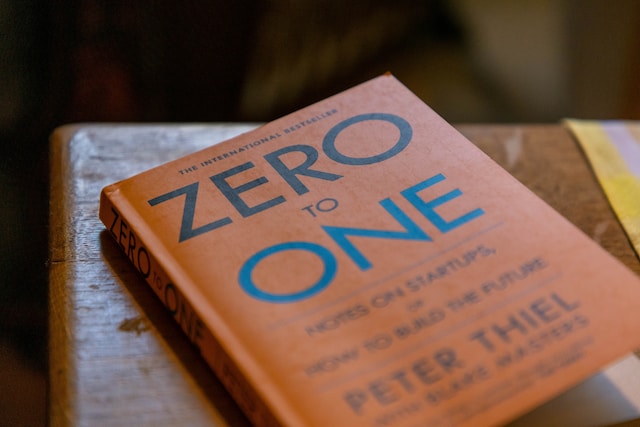Memoirs have the power to transport readers into another world, allowing them to experience someone else’s life as if it were their own. It’s no wonder that memoirs continue to captivate audiences worldwide, with some even becoming best-selling books and inspiring movies. But how do you master the craft of writing a memoir? In this blog post, we will explore everything you need to know about writing a successful memoir in American literature. From understanding what a memoir is and why it’s important to learning tips for writing your own compelling story, this guide has got you covered! So grab your pen and paper, let’s dive into the art of mastering the craft of writing memoirs!
What is a memoir?
A memoir is a type of autobiographical writing that tells the story of someone’s life. However, unlike an autobiography which covers the entirety of a person’s life, a memoir focuses on a specific theme or period in their life.
A memoir can be written by anyone, regardless of age or status. It can cover any topic or experience from love and loss to career struggles and triumphs. The goal is to share one’s personal experiences with readers in an honest and relatable way.
One key aspect that sets memoirs apart from other forms of writing is its emphasis on emotional truth rather than factual accuracy. This means that while events may be recounted out of order or certain details omitted for dramatic effect, the overall essence and feeling behind it remains true to the author’s memory.
Memoirs provide readers with insight into different perspectives and lived experiences they may not have otherwise encountered. It allows them to connect with others on a deeper level through shared emotions and empathy.
A memoir is more than just recounting past events – it’s about sharing your unique human experience with others in hopes that they too will feel seen, heard, understood, and less alone in their own journey through life
Why write a memoir?
Writing a memoir is an incredibly personal and intimate experience. It allows you to reflect on your life, experiences, and relationships in a way that few other mediums can. Not only does it give you the opportunity to share your story with others, but it also allows you to make sense of your own journey.
Writing a memoir is not just about recounting events or listing facts; it’s about delving deeper into the emotions behind those events. By exploring your memories and feelings, you gain insight into yourself and can connect with readers on a more profound level.
Memoirs are also important because they preserve history. While history books may focus on major events or famous figures, memoirs offer a unique perspective from ordinary people who lived through those times. They provide valuable insights into social norms, cultural practices, and everyday life that might otherwise be forgotten.
Writing a memoir is an act of courage. Sharing one’s vulnerabilities and struggles takes bravery and honesty. But by doing so, authors can inspire others who may be going through similar challenges.
In short: write a memoir if you want to gain self-knowledge while preserving history for future generations – all while inspiring others along the way!
What are the different types of memoirs?
Memoirs are a great way to share your personal experiences with the world. There are various types of memoirs, and each one has its own unique characteristics.
One type of memoir is the coming-of-age story, which is about growing up and learning valuable life lessons. This type of memoir often includes stories about family relationships, school experiences, and self-discovery.
Another type is the travelogue memoir, which recounts adventures in different parts of the world. These kinds of memoirs usually include descriptions of exotic locations and cultures as well as personal growth that comes from experiencing new things.
A third type is a celebrity or public figure’s memoir that provides insights into their lives beyond what we know from media coverage. It’s interesting to read about what happens behind closed doors for some people who seem so far removed from everyday life!
There’s also historical or political-memoir writing – this format can offer valuable insight into important events through someone else’s perspective while sharing their own story at the same time.
Regardless of which style you choose when writing your memoire—just be sure to stay true to yourself!
Tips for writing a successful memoir
Writing a memoir can be an overwhelming task, but with proper planning and execution, it can be a rewarding experience. Here are some tips to help you write a successful memoir.
1. Find your story: Your memoir should focus on a particular aspect of your life that is interesting enough to engage readers. Identify the core message you want to convey and use anecdotes and experiences that support it.
2. Be honest: Honesty is crucial in writing a memoir. Readers relate better to stories that ring true, so don’t sugarcoat or exaggerate events.
3. Show, don’t tell: Use sensory details and dialogue to immerse readers into your world instead of simply telling them what happened.
4. Craft characters carefully: Ensure each person who appears in your narrative has depth and adds value to the story rather than serving as filler material.
5. Organize effectively: Decide on the structure of your book before starting writing; this helps keep you focused while writing.
6. Edit ruthlessly: Read over each section repeatedly, ensuring clarity by omitting unnecessary information while keeping only significant moments relevant for storytelling purposes
7. Seek feedback from others:A second opinion can often provide valuable insights regarding the readability of content or how well certain aspects come across.
By following these tips, you will have taken significant steps towards crafting an engaging memoir that resonates with readers long after they’ve finished reading it!
The Writing Process
The writing process is a journey, and for memoirs, it can be an emotional one. The first step is to determine your story’s purpose: why are you writing this memoir? Once you have that in mind, start brainstorming ideas and themes that will give structure to your narrative.
After outlining the major events and themes of your life story, begin refining those into chapters or sections. Remember to craft each section with vivid details and sensory language that paints a picture for readers.
A common pitfall in memoir writing is getting bogged down in self-pity or nostalgia. Avoid falling into this trap by reflecting on lessons learned from your experiences rather than simply recounting them.
As you write, take breaks periodically to reflect on what has been written so far. This reflection time allows for revision while ensuring coherence across the entire manuscript.
Once the final draft of your memoir is complete, enlist beta-readers who will provide constructive feedback before publication. With their critiques incorporated, submit the piece to multiple publishers or consider self-publishing options!
The key takeaway from the writing process is patience – don’t rush through any part of it! Take breaks when necessary but always keep moving forward towards completing an unforgettable masterpiece!
How to market your memoir
Congratulations on finishing your memoir! Now that you’ve put in all the hard work, it’s time to share your story with the world. Here are some tips for marketing your memoir and getting it into the hands of readers.
First, identify your target audience. Who would be interested in reading about your experiences? Think about demographics such as age, gender, and location. Once you have a clear idea of who you’re targeting, tailor your marketing efforts to reach them.
One effective way to market a memoir is through social media. Use platforms like Twitter, Facebook and Instagram to connect with potential readers by sharing snippets from your book or personal anecdotes related to its content.
Another option is reaching out to bloggers and book reviewers in your niche or genre. They may be willing to read and review your book on their website or social media channels which can help generate buzz around it
Consider hosting an event either online or offline where you can discuss the themes of the book with others – this could include signings at local shops as well as readings at libraries.
And finally don’t forget traditional advertising methods such as placing ads in relevant publications both digital and print mediums alike.
Remember that marketing takes time but with dedication and perseverance in promoting yourself within people’s radar will eventually lead more opportunities for growth!
What to do after you finish your memoir
After all the hard work and effort put into writing a memoir, it can be difficult to know what comes next. Here are some steps you can take after finishing your memoir:
1. Edit and revise: Once you have finished your memoir, go through it again with fresh eyes. Look for any errors or areas that need improvement.
2. Seek feedback: Ask someone you trust to read your memoir and provide honest feedback. This will help identify areas where improvements can be made.
3. Consider publishing options: There are several publishing options available, from traditional publishing houses to self-publishing platforms like Amazon’s Kindle Direct Publishing.
4. Build an author platform: Start building an online presence by creating a website or social media accounts dedicated to promoting yourself as an author.
5. Attend events and conferences: Attend literary events and conferences in order to network with fellow authors, agents, publishers, and other professionals in the industry.
6. Keep writing: Don’t stop writing just because you’ve finished one project! Keep honing your craft by working on new projects and exploring different genres.
Writing a successful memoir takes time, patience, dedication, but above all passion for sharing personal experiences through words that connect readers at a deeper level than mere storytelling could ever achieve; so remember these tips when embarking on this journey of mastering the art of writing Memoirs in American Literature!









